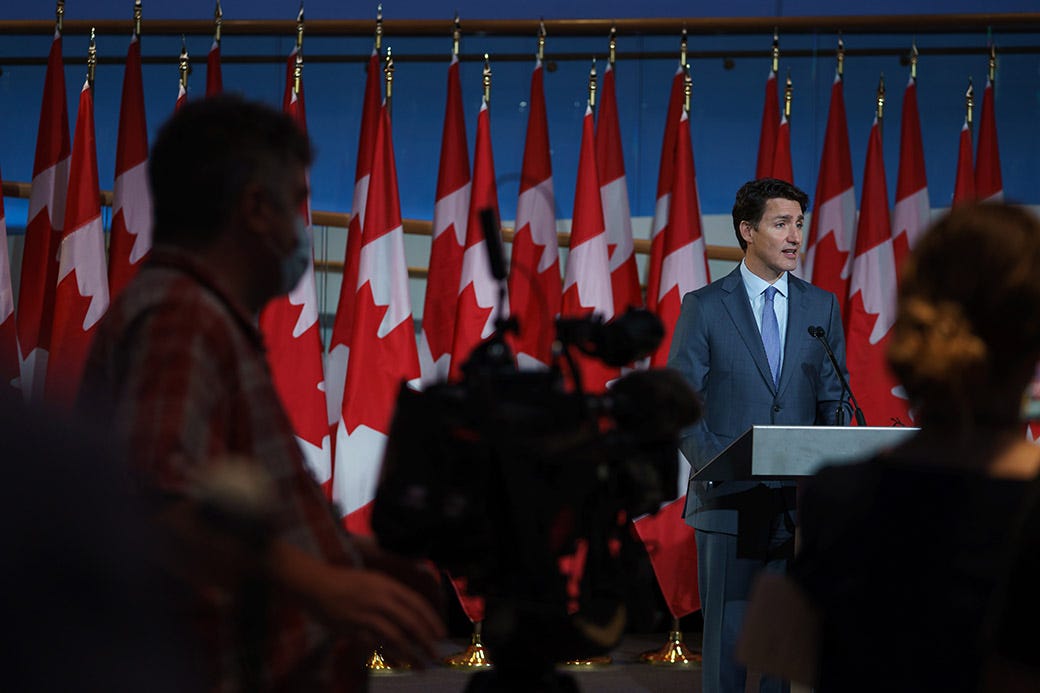Welcome to Planet Days, a five-minute roundup of the latest climate news and what it means for our Planet. If this was forwarded to you, smash that subscribe button:
Last week, Poland banned Russian coal, severe floods struck Australia again, and researchers found that shifting to EVs could save 100,000 lives.
In case you missed it, here’s what else happened around the Planet.
Monday, March 28
What’s in Biden’s budget
On Monday, United States President Joe Biden released a $5.8 trillion budget for the 2023 fiscal year. And though the sweeping climate bill, Build Back Better, is stalled in the Senate, the Budget tries to make up some ground with nearly $45 billion in climate provisions, including:
$18 billion to adapt to worsening floods, storms, and wildfires fueled by climate change.
$11 billion for other nations to adapt to climate impacts.
$9 billion for clean energy research.
$1.45 billion to bolster the EPA’s environmental justice efforts and advance racial equity.
The proposal also boosts several agencies' current budgets: the Environmental Protect Agency (up 25%), the Department of the Interior (up 24%), and the Department of Energy (up 7%). The real news, however, will come when Congress starts changing the proposal. E&E News has more.
Tuesday, March 29

Canada’s big climate swing
But let’s not forget about our neighbors up north. On Tuesday, Canada released a sweeping $9.1 billion plan to cut emissions 40% by 2030 and achieve net-zero emissions by 2050. The plan:
Installs 50,000 charging stations, incentivizes consumers to switch to EVs and mandates all new passenger cars and trucks to be electric by 2035.
Requires oil and gas producers to cut emissions by 42%.
Develops a Clean Electricity Standard, with the aim to decarbonize the grid by 2035.
Develops a national net-zero by 2050 buildings plan, which includes higher building codes standards and energy retrofits.
Invests in carbon-capture technologies and incentivizes clean technologies and fuel.
Sets aside funding for community-led climate action.
But the plan is not perfect, its critics argue. Notably, it fails to limit oil and gas production and relies too much on technological fixes, like carbon capture. Still, $7 billion in new spending is nothing to dismiss. CBC dives deeper.
Bitcoin under fire
Environmental groups are now bringing the climate fight to the world of cryptocurrency. Greenpeace and others announced a new campaign Tuesday — called “Change the code, not the Climate” — which pushes Bitcoin to change the way it verifies transactions and mines for new Bitcoins.
Bitcoin currently uses more electricity annually than all of Norway, but environmentalists believe that can change. Other cryptocurrencies use a fraction of the energy Bitcoin requires because they simply use a different system to verify transactions. Read more from The Verge.
Meanwhile, the U.S. Office of Science and Technology Policy announced it will investigate if cryptocurrencies in general “impede or advance efforts to tackle climate change.” Protocol has that story.
The gap between promise and policy
Stop me if you’ve heard this before: The Planet’s talk is bigger than its walk, finds new research from BloombergNEF.
The report zooms in on Group-of-20 countries, many of which updated climate commitments at COP26, and finds that no G20 country made enough policy changes to achieve “deep decarbonization” — though 11 out of 19 countries did make progress. Notably, countries had the biggest gains in the power sector but are falling behind in industry and low-carbon fuels.
“Government pledges often get the headlines and promises made around COP26 last year were impressive,” BNEF policy head Victoria Cuming said in a statement. “But talk is cheap – none of the G-20 countries has implemented sufficient concrete incentives and regulations to achieve what’s been promised.”
Wednesday, March 30
Wind and solar on the right track
But it’s not all doom and gloom. Last year, solar and wind provided the Planet with 10% of its electricity, according to the thinktank Ember.
Should solar and wind continue to grow at their current rate, the power sector will be on track to limit global warming to 1.5 degrees Celsius, the mark set by the Paris Agreement. But with the war in Ukraine, rising electricity demand, and a recent coal power boom, we can’t let our foot off the gas.
“We're getting closer to that break-even where wind and solar can cover new electricity demand, but we are still not quite there,” Ember's global lead Dave Jones told Reuters. “If we maintain those growth rates we see, we will be there shortly.”
Thursday, March 31
Bank’s phony pledges
A new report finds the world’s most powerful banks — many of which have signed net-zero pledges — funneled $4.6 billion into fossil fuel projects in the six years since the Paris Agreement was signed.
“Fossil fuel companies wouldn’t be able to do what they do without funding from big banks—these banks provide companies with the capital they need to build and maintain enormous, pricey fossil fuel infrastructure,” Alison Kirsch, one of the authors of the new report, told Earther in an email.
The findings come as the U.N. launches an initiative to hold companies accountable for their climate pledges. But making good on their promises is also in their own financial interest: European banks could earn almost $6.6 billion in annual revenue from financing the transition to a more sustainable economy, Bloomberg reports.
Biden’s delicate balance
With the war in Ukraine raging, U.S. President Joe Biden is walking a fine line between keeping gas prices low and achieving his climate goals. Last week he agreed to increase exports of liquified natural gas to the E.U. — and this week he narrowed in on gas prices.
With gas prices hovering around $4.20/gallon, Biden ordered the release of 1 million barrels of oil/day for the next six months from the nation’s strategic petroleum reserve, a move that he says could knock off 10 to 35 cents/gallon in the coming weeks. POLITICO explains how it could work.
But that’s only one side of the coin. The same day, Biden invoked the Defense Production Act to ramp up domestic mining of strategic materials for batteries, such as those used in electric vehicles, reports The Verge.
Bonus
Green Sox
The Boston Red Sox have had a lot of World Series championships in the past two decades. And they’ll add another title this year: The team is expected to announce that games at Fenway Park will be carbon neutral, a first for Major League Baseball, Axios reports.
Sports venues have large carbon footprints, particularly when attendee travel is taken into account. But with similar moves expected from other clubs, the move will be good for the Planet (and for Sam, who loves cheering on her favorite team at America’s favorite park).
Have a great week,
Brandon and Sam






